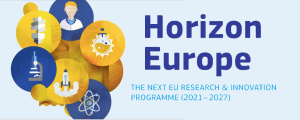 What is Horizon Europe?
What is Horizon Europe?
Horizon Europe is the EU’s key funding programme for research and innovation with budget of €95.5 billion.
It tackles climate change, helps to achieve the UN’s Sustainable Development Goals and boosts the EU’s competitiveness and growth.
The programme facilitates collaboration and strengthens the impact of research and innovation in developing, supporting and implementing EU policies while tackling global challenges. It supports creating and better dispersing of excellent knowledge and technologies.
It creates jobs, fully engages the EU’s talent pool, boosts economic growth, promotes industrial competitiveness and optimises investment impact within a strengthened European Research Area.
Legal entities from the EU and associated countries can participate.
European Innovation Council: Support for innovations with potential breakthrough and disruptive nature with scale-up potential that may be too risky for private investors. This is 70% of the budget earmarked for SMEs.
Missions: Sets of measures to achieve bold, inspirational and measurable goals within a set timeframe. There are 5 main mission areas as part of Horizon Europe.
Open science policy: Mandatory open access to publications and open science principles are applied throughout the programme Factsheet: Open science in Horizon Europe
New approach to partnerships: Objective-driven and more ambitious partnerships with industry in support of EU policy objectives
!Important notice! - the main applicant must have already finished their PhD in order to be co-applicant. Best scenario is when a consortium of University partners is made and Faculty of Education is selected as a co-applicant in the research proposal. All applicant must forward the Faculty grant form to and have it signed by the department head before applying to the EC Europa portal. Investment costs are not elligable costs at PedF CUNI.
Notice for researchers with ongoing projects. The head researcher has to input the supervisor / supervisor into the grant proposal, where according to the rules of HEUROPE, funding on the basis of DPP or rewards can be granted as a form of payment to the supervisor. In total, worload of 1.2 must not be bridged at the faculty - if your supervisor, for example, is the guarantor of the program, he / she cannot have less than 1.0 workload per contract. The rules stipulate that the university / faculty employee may not have more than 1 week. Therefore, the supervisor cannot be paid remuneration on the basis of agreements (DPP / DPČ). In such cases, please select the remuneration in the form of rewards. It is therefore recommended that faculty staff in the role of supervisor always have a reward in the project proposal, not an agreement. This is set by the head researcher / applicant in the project proposal in the webapps application. The provision of grant funding is governed by the HEUROPE Guidelines.
Personnel cost callculation, DPP/DPČ and rewards at the faculty of Ecuation fo the year 2022
Finantial guidelines (Annex-II)
Example of cost callcualtion:
|
people in project |
workload |
type of contact |
maximal tarif salary per month at PedF CUNI |
personnel costs per year |
PMs (personmonths) |
|
assistant professor with finished PhD from my department |
0,4 - 64hours per month |
VP3 |
32000CZK for 1,0 (you ahve to deduct according to workload) = 32000/10*4=12800 CZK |
153 600CZK | |
|
PhD student |
0,2 - 32hours per month |
VP1 |
26600CZK for 1,0 = 26600/10*2=5320 CZK |
63 840CZK |
NOTE: PM is the estimated human effort by work package in project can be calculated as follows: 1 person month = annual productive hours (option 1, option 2 or option 3 in GA) / 143,3
Manual on how to apply via the EC Europa H EUROPE portal:
Consortium proposal to be input in EC EUROPA:
Profile registration
Current HEUROPE calls:
Call for proposals to protect and promote the rights of the child (CERV-2022-CHILD) / deadline 18.5.2022
Alliances for Education and Enterprises / deadline 15.9.2022
TV and online content / deadline 20.9.2022
https://ec.europa.eu/info/funding-tenders/opportunities/portal/screen/opportunities/horizon/hop-on / deadline